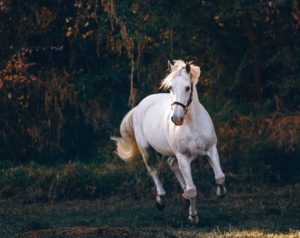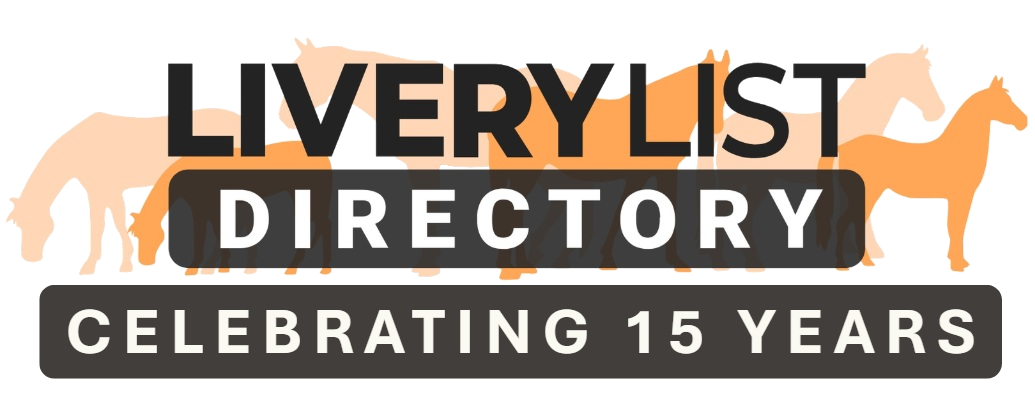It’s no secret that owning a horse comes with a great deal of responsibility and many expenses. When it comes to expenses, you need to be sure you clearly understand how much the animal (or animals) will cost to acquire and properly care for. You’ll want to ensure you have the means to provide for your animal its entire lifetime, and you may need to rely on far more than a birthday bonus or big windfall to fund the purchase.
This article outlines some key expenses you’ll encounter when owning a horse to help you prepare your finances and plan your purchase.

Initial Purchase Costs
The cost of buying a horse can vary significantly, depending on factors such as the horse’s breed, age, and level of training. A young, untrained horse can start at just £1,000, while an older, well-trained one can begin at £15,000. Keep in mind the purpose for which you’re getting your horse; will it be for leisure, competitions, or racing? This will influence many factors in the buying process. If you decide to get an untrained horse, remember that training the animal for your needs will be costly, so it may not be as good a deal as it sounds.
Part of the purchase costs will also come in the form of an initial veterinary exam and the transportation costs of getting the horse to your livery or stable, which may require purchasing or renting a horse trailer or service. An in-depth veterinary exam can cost around £250, while the transportation costs will vary greatly depending on the resources you currently have access to.
Housing and Boarding
Your horse will need somewhere safe and clean to call home, which most owners outsource to a livery. There are typically three levels of livery, each with a weekly fee that increases in cost.
The first and most commonly used one is a DIY livery, where you pay solely for the stall your horse will stay in. You’ll need to take care of the cleaning, mucking, and turning out (taking it outside the stable for fresh air and socialisation). DIY liveries cost horse owners between £20 and £30 per week.
The second type is a part-time livery, where your weekly fee, usually between £70 and £150, includes cleaning the stall and turning out your horse. The third type is a full-time livery, where all your horse’s needs will be handled. It’s the most expensive option, at around £150 per week.
Daily Care and Feeding
Horses have extensive daily care routines, and the expenses of meeting their needs can add up quickly. These expenses primarily come in the form of horse feed and bedding. There are several options for horse feed, including hay and grain, but these will also vary depending on your animal’s needs. For instance, some horses may need a specialised diet to meet their nutrition needs. The costs for just hay begin around £30 to £50 a month, while grains and other supplements or speciality feeds will cost more.
Bedding, which needs to be replaced at least once a day to maintain a clean space for your horse, comes in various forms, including straw, wood pellets, and softwood shavings. Each has pros and cons, and the costs vary from £6.99 for a bag of wood pellets to between £10.75 and £26.50 for a same-sized bag of wood shavings. Buying in bulk is often the most cost-effective in the long term, but it may feel expensive upfront, with costs for bulk bedding starting around £245.
Equipment and Tack
In addition to feed and bedding, other tools and equipment are used daily to meet your horse’s needs. These include various bushes for grooming, saddles, bridles, and clothing to protect them from cold and wet weather.
Veterinary and Healthcare
Horses require an annual veterinary visit to check on their overall health and to keep their vaccines up to date. As mentioned, the visit can cost around £250, while additional services come with further fees. For example, most vaccines range from £25 to £40 each. Medications, scans, and dental care will be additional fees as well. Emergency vet costs are always a good idea to have a financial cushion.
Additionally, horses need to have their hooves taken care of by farriers who can trim hooves and reshoe horses to protect them from injury and monitor their health and wellness.
Training and Activities
Whether you’re getting a horse for leisure or competitions, they’ll need some training and lessons, particularly if you’ve never owned or worked with a horse and are learning all the ins and outs yourself. Costs for this usually start between £20 and £60 per lesson. If you’re entering into competition with your horse, you’ll encounter fees for entering and travelling to events. You’ll also need to consider the cost of accommodations for your horse and what you need yourself.
Insurance and Liability
Just as you protect your home, vehicle, or other animals with insurance, you’ll want to do the same for your horse. Insurance will give you peace of mind and help you deal with unexpected medical costs or liability if your horse is involved in an accident. Typically, insurance costs for a horse range from £200 to £500 a year, but these can vary greatly, just like other insurance rates.
Conclusion
Owning a horse comes with great pride and plenty of joy and triumphs as you bond with your animal and learn to work together to achieve various daily activities. However, they also come with quite a few costs, which can be hard to bear even at the best of economic times. The current living costs have added financial pressure and challenges for many horse owners, so it’s essential to consider all the different expenses of owning a horse and your financial situation before leaping into horse ownership.
